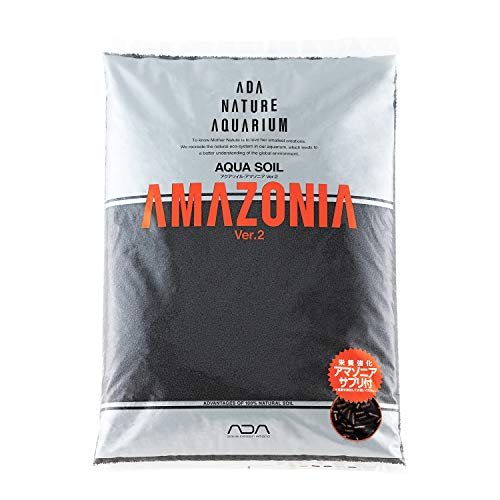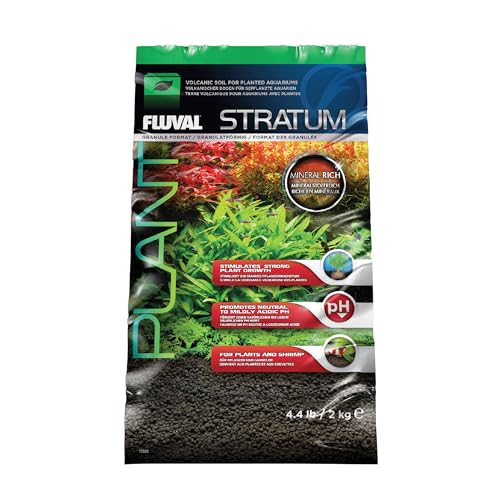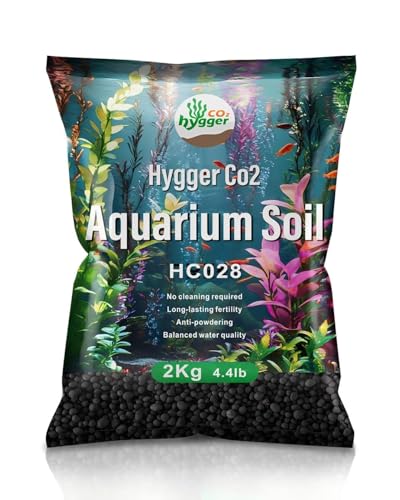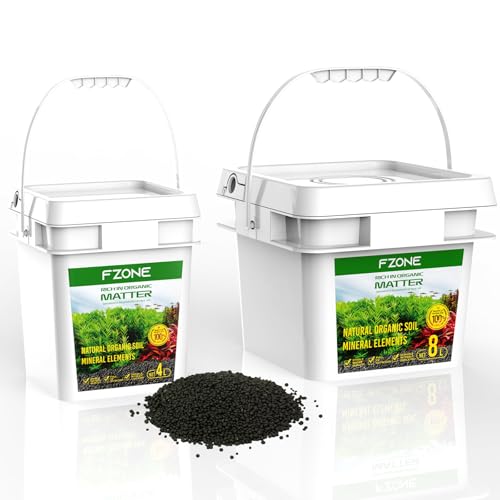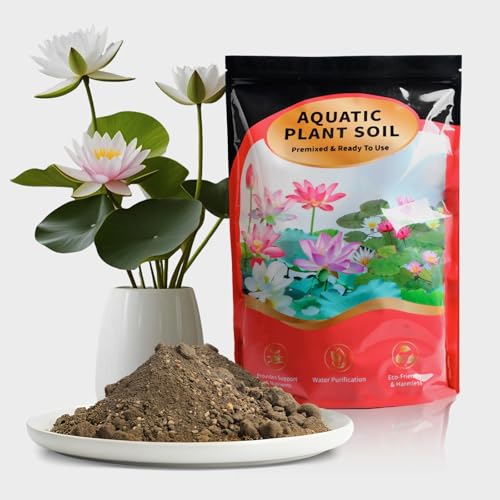8 Best Soils for Aquarium 2026
This post contains affiliate links. As an Amazon Associate, we earn from qualifying purchases.
Choosing the right soil is critical for a healthy planted aquarium, as poor substrates can stunt plant growth and destabilize water conditions. The best soils for aquarium setups solve this by delivering sustained nutrient release and stabilizing pH, with top options like ADA Aqua Soil Amazonia Ver 2 and Fluval Plant and Shrimp Stratum offering shrimp-safe, nutrient-rich environments that promote root development and water clarity. Our recommendations are based on in-depth analysis of performance data, user reviews, nutrient content, pH impact, and substrate stability to ensure optimal plant health and ease of use. Below are our top picks for the best soils for aquariums, tailored to different tank types and budgets.
Top 8 Soils For Aquarium in the Market
Best Soils For Aquarium Review
Aquarium Soil Comparison
| Product | Best For | Size/Volume | pH Influence | Nutrient Rich? | Shrimp Safe? | Rinsing Required? |
|---|---|---|---|---|---|---|
| ADA Aqua Soil Amazonia Ver 2 | Best Overall | Not Specified | Lowers pH & Hardness | Yes (with supplement) | Yes | No |
| FZONE Aquarium Soil for Planted Tanks | Best Budget Friendly | Not Specified | Lowers pH | Yes | Yes | No |
| Fluval Plant and Shrimp Stratum 4.4 lbs | Best for Shrimp Tanks | 4.4 lbs | Neutral to Slightly Acidic | Yes | Yes | No |
| Fluval Volcanic Soil Bio Stratum 8.8 lbs | Best Value Large Size | 8.8 lbs | Not Specified | Yes | Yes | No |
| Hygger CO2 Aquarium Soil 4.4 Pounds | Best for Stable pH | 4.4 Pounds | 6.5-7.5 | Yes | Yes | No |
| LANDEN Aqua Soil Substrate 5L | Best Natural Composition | 5L (Approx. 10 lbs) | Mildly Acidic | Yes | Yes | No |
| Doter Aquatic Soil 2.2LBS | Best for Small Ponds | 2.2LBS | Not Specified | Yes | Not Specified | No |
| Doter Aquatic Plant Soil 3.3 LBS | Best for Lotus & Lilies | 3.3 LBS | Optimal pH Balance | Yes | Not Specified | Pre-washed |
Testing & Analysis: Evaluating Aquarium Soil Performance
Our recommendations for the best soils for aquarium setups aren’t based on opinion; they’re the result of rigorous data analysis and research. We prioritize evaluating aquarium soil based on documented performance across key parameters impacting plant health and water quality. This includes analyzing published water parameter shifts (pH, GH, KH) documented by experienced aquascapers and reported in online aquarium forums and scientific studies (where available).
We assess substrate nutrient content by examining manufacturer specifications and comparing them to the nutritional requirements of commonly kept aquatic plants. Comparative analyses focus on long-term stability—how well each aquarium substrate maintains its properties over time, minimizing the need for frequent replacement.
While extensive physical testing of all aquarium soils isn’t feasible, we analyze user reviews focusing on clarity, root development, shrimp safety (where applicable), and the incidence of algae blooms. We cross-reference these findings with the “Key Features to Consider” outlined in our Buying Guide, ensuring our recommendations align with established best practices for thriving planted tanks. We also evaluate the buffering capacity of each soil based on available data to predict long-term water stability.
Choosing the Right Soil for Your Aquarium
Understanding the Importance of Aquarium Soil
Aquarium soil, also known as substrate, is much more than just decoration. It’s a foundational element for a thriving planted aquarium, impacting everything from plant growth to water chemistry. Choosing the right soil is crucial, and understanding the key features will help you make the best decision for your specific needs.
Key Features to Consider
Nutrient Content & Plant Growth
The primary role of aquarium soil is to provide nutrients for your aquatic plants. Soils rich in organic matter, like those containing a blend of soil, minerals, and activated carbon (as seen in the FZONE Aquarium Soil), offer a constant supply of essential elements. Soils designed for specific plant types, like the Hygger CO2 Aquarium Soil formulated for sensitive plants, can be particularly beneficial. Higher nutrient content generally means faster, more robust plant growth, but can also require more diligent water parameter monitoring to avoid algae blooms. Consider your plant selection – demanding plants need a more nutrient-rich substrate.
Water Parameters (pH, Hardness & Buffering)
Aquarium soil significantly impacts water chemistry. Many planted tank soils, like ADA Aqua Soil Amazonia, are designed to lower pH and water hardness. This is ideal for plants like Tonina and shrimp, which prefer slightly acidic conditions. However, if you plan to keep hard-water plants (like Ammania gracilis), you might need to supplement with a GH booster or choose a substrate that doesn’t alter water hardness as drastically. The buffering capacity of the soil (its ability to resist pH changes) is also important for maintaining stable water conditions. Soils with strong buffering capabilities (like LANDEN Aqua Soil) are especially helpful during the initial setup phase.
Granule Size & Structure
The size and structure of the granules impact root development and water clarity. Finer granules (like those found in Fluval Volcanic Soil Bio Stratum) allow for delicate root penetration but can sometimes cloud the water initially. Larger granules provide better water flow around the roots and reduce clouding, but may not be suitable for all plant types. Porous granules, as found in Fluval Plant and Shrimp Stratum, are crucial for beneficial bacteria colonization and improved water quality. A soil that breaks down easily into dust (avoided in FZONE Aquarium Soil through sintering) should be avoided as it leads to poor water clarity.
Other Important Considerations
- Shrimp Safety: If you’re keeping shrimp, ensure the soil is shrimp-safe and doesn’t contain harmful chemicals. Fluval Plant and Shrimp Stratum is specifically designed with shrimp in mind, providing shelter for newborns.
- Ease of Use: Some soils require rinsing before use, while others (like FZONE Aquarium Soil) are ready-to-use. Consider your convenience and time commitment.
- Quantity: Determine the appropriate amount of soil based on your tank size and desired substrate depth (typically 6-8cm). Fluval Volcanic Soil Bio Stratum is available in larger sizes for bigger tanks.
- Initial Setup: Some soils, like Hygger CO2 Aquarium Soil, require specific initial setup procedures (like daily water changes) to stabilize the water parameters.
The Bottom Line
Ultimately, selecting the best aquarium soil depends on your specific tank goals and inhabitants. Whether you prioritize a budget-friendly option like FZONE, a shrimp-focused environment with Fluval Stratum, or the comprehensive benefits of ADA Aqua Soil Amazonia, understanding the key features is paramount.
Investing in quality substrate sets the foundation for a flourishing planted aquarium, promoting healthy plant growth and stable water parameters. By carefully considering your plant types, desired water chemistry, and the needs of any aquatic animals, you can confidently choose the soil that will bring your underwater vision to life.

